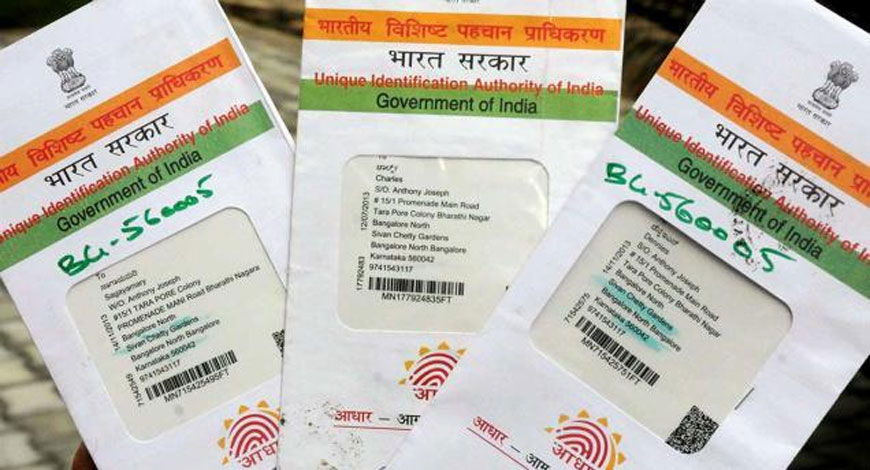Privacy issues with Aadhaar?
July 21, 2017 | Expert Insights

“My fingerprints and iris are mine and my own. The state cannot take away my body," a lawyer told India's Supreme Court.
On June 2017, the Supreme Court passed an order on compulsory linking of an individual’s income tax PAN and Aadhaar numbers. The central government has stood firm on giving welfare benefits only for those with Aadhaar after 30 June. The government claims that by linking the Aadhaar with PAN, authorities will be able to crack down on people who are escaping the tax net.
Aadhaar Infringes on Privacy
Privacy is being interpreted in different, equally valid, ways by different sets of people. But the differences in interpretation is not always obvious to those who participate in the discussions.
Data Security:
UIDAI system uses 2048-bit PKI encryption and tamper detection using HMAC to ensure that no one can decrypt and misuse the data. Resident data and raw biometrics are always kept encrypted, even within UIDAI data centres.
Aadhaar information with 3rd party vendors:
Many 3rd parties are creating private database with Aadhaar information and interlinking identity with other sources. Eg: If a company combines Aadhaar information with e-commerce transactions, it can provide a very detailed profile of an individual. Aadhaar makes it easier to compare and combine diverse databases.
Personal integrity
The discomfort lies in information about our lives being available to people or institutions with whom we do not wish to share it. Some believe that this interpretation of privacy is an elitist concern.
Veteran journalist Shekhar Gupta tweeted, “Crores of rural and urban poor see Aadhaar as tool of empowerment. They don’t even know elite anti-Aadhaar echo chambers exist & they don’t care”.
Analysis
As the petitioners conclude their arguments before the bench of nine judges hearing the Aadhaar-related privacy challenge. It is becoming clear that the court’s strategy to split the issue of whether privacy is a fundamental right from the constitutional challenge to Aadhaar was a mistake.
So far, the issue of privacy has been adjudicated by the Supreme Court enacting real life cases. This ranges from police surveillance, tapping of telephones and sensitive medical information, Narco analysis & search and seizure powers of different state agencies.
In line with such arguments, the attorney general (AG) quipped that “Indians do not care about privacy, why else would we find train passengers who share their life histories?” This however is a case of a person who willingly shares information about his life.
Assessment
Our assessment is that, centralised and inter-linked databases lead to profiling and self-censorship, which can endanger our freedom. The purpose of Aadhar was to provide a platform to the poor and the marginalised to access various social security schemes directly without the need of an intermediary.








Comments